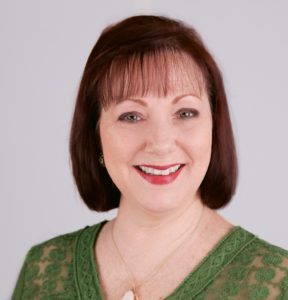
Photo by Anthony Tran
“AND FORGIVE US our trespasses as we forgive those who trespass against us . . .”
These are familiar words I’ve repeated over and over again every time I say the Lord’s Prayer. I understand what I’m saying. I’m asking God to forgive me in the same proportion as I forgive others. And I think I am pretty forgiving of others. And yet, every now and then when certain names are occasionally mentioned, bad feelings rise within me. Is that unforgiveness?
If so, what is the problem with unforgiveness?
Recently, a friend told me that at one time in her life she’d been so bound up with unforgiveness that it actually caused her to become mentally ill for a while. She was even temporarily institutionalized.
It was a shocking revelation that jolted me into thinking more about the subject of unforgiveness.
What is Unforgiveness?
What is unforgiveness? Why do we carry it around? How can it have such negative effects on us? And where does it begin?
I found part of the answer in Ephesians 4:26-27. “In your anger do not sin.” Do not let the sun go down while you are still angry, and do not give the devil a foothold.”
Unforgiveness begins as a simmering anger that grows and grows, an anger we nurture in our hearts and minds. But Paul’s warning above is that by allowing it to fester within us, we are “giving the devil a foothold.” We are opening ourselves up to the devil’s schemes to “kill, steal, and destroy” (John 10:10). And one way he tries to destroy us is by planting seeds of bitterness within us because he knows the damage bitterness can do to our souls. And that bitterness often evolves from unforgiveness.
But unforgiveness doesn’t just happen out of thin air. We have reasons for not being able to forgive. We’ve been hurt. Maybe deeply hurt. And wronged. Unforgiveness seems like a way of protecting ourselves from more hurt and a way to inflict justice on the one who hurt us. Our pain blinds us from the deeper truth that the bitter root of unforgiveness spreading through our minds and hearts gives a foothold to the devil to steal our peace and joy and ravage our very souls (and perhaps our sanity.)
How Do We Forgive?
It’s hard to forgive. It’s hard to move beyond the pain when someone hurts, wrongs, or betrays us. Even the thought of forgiving them curdles in our veins. That person doesn’t deserve our forgiveness. He or she deserves to feel our anger. But the more that root of anger deepens into bitterness, the more our peace evaporates.
Jesus tells us to forgive others, not to punish us or make things hard for us, but to bring us freedom. He demonstrated the humility and the power of forgiveness even as he hung on the cross, asking God to forgive those who were crucifying him at that very moment. And after he triumphed over death, he offered His forgiveness to us even though our sins are many.
Forgiveness can provide a road to freedom and peace when we take our pain to our loving Father and lay it at His feet. He will bind up the wounds of our heart and heal the brokenhearted (Psalm 147:3).
If you are experiencing deep depression, if your peace has evaporated and joy seems something only found in fairy tales, let God help you examine your heart to see if a root of bitterness and unforgiveness has stolen the sweetness from your life.
How To Find the Freedom
To better understand how to be able to forgive, my Focus on the Family article, Understanding Forgiveness, may clarify it for you and make it easier to get to a peaceful place.
And if you want to experience freedom from depression and negative thoughts, I urge you to read Patty Mason’s story.
God wants you to experience the freedom only He can give. He wants to give you His peace and joy.
If your heart is breaking and you’re finding it hard to forgive, my first book, Broken Heart on Hold will walk with you through your pain and help you find that road to peace.
“Search me, O God, and know my heart; test me and know my thoughts” (Psalm 139:23).
“The thief comes only to steal and kill and destroy; I have come that they may have life, and have it to the full” (John 10:10).







